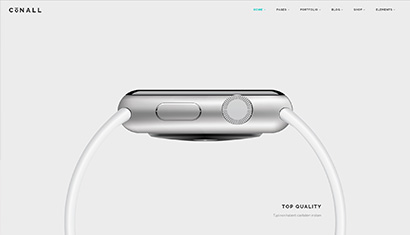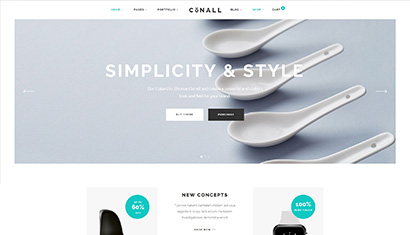how much formula should a 10 week old eat
However, after a few weeks the amount consumed at each feeding will increase and the number of feedings will decrease—baby will eat more but less often. * If your baby goes longer than 4 hours without eating, be sure to wake him or her to feed them. If you notice any changes in your baby's eating habits or digestion, make sure to talk to your doctor. Luckily, babies tend to instinctively know when they need to eat. 10 weeks until weaned. During the second week, they should be on 5-7 ml per feeding. Responsive Feeding Explained (Video). Monitor their eating habits and adjust to them accordingly. Remember that an infant's needs can change day-to-day. "Thousands of parents, from regular moms and dads to Hollywood superstars, have come to baby expert Dr. Harvey Karp to learn his remarkable techniques for soothing babies and increasing sleep. In this book, each and every one of the authors presents a remarkable work for how to apply the evidence to clinical practice from different aspects. I hope this book is a key for every reader to open the door to LUTD. "Makes it easy for kids to learn to love healthy amounts of healthy foods—and to enjoy meals together as a family." —Brooke Burke, the Modern Mom "'Nutritional Intelligence'—this approach is a gift to ensure that every little one will ... alert icon. Sometimes patterns of obesity begin during infancy, so it is important not to overfeed your baby. So instead of going by fixed amounts, let him tell you when he's had enough. Keep in mind that, as your baby is eating more solid food, it is completely normal if they drink less formula per feeding. As you become familiar with his signals and needs, you'll be able to schedule his feedings around his routine. 10-11 Weeks: They should be urinating and defecating on their own now. Initially, you might have given this amount divided across three meals. By six months: Your baby will consume 6 to 8 ounces (180–240 mL) at each of four or five feedings in twenty-four hours. An 8-week-old kitten should be able to eat both dry and wet kitten food without . Divide their needed daily intake by the number of required daily feedings, and you'll know how much they should eat each time. The average 10-week-old baby drinks about 4 to 6 oz. At about 2 months, your baby may be taking 4-5 ounces (120-150 milliliters) at each feeding and the feedings may be every 3-4 hours. For this reason, you need to control how much formula you give the baby. I was just like you when he was that old. 3-12 Months: As your puppy gets older, you can reduce the number of feedings to twice daily. Most babies are satisfied with 3 to 4 ounces (90–120 mL) per feeding during the first month and increase that amount by 1 ounce (30 mL) per month until they reach a maximum of about 7 to 8 ounces (210–240 mL). If your baby still seems to feed very frequently or consume larger amounts, try distracting him with play or with a pacifier. Over the first few weeks and months, the time between feedings will start to get longer— on average about every 2 to 4 hours for most exclusively breastfed. Like breastfed babies, bottle-fed newborns should eat on demand. [5.4 kg]), most formula-fed babies no longer need a middle-of-the-night feeding, because they're consuming more during the day and their sleeping patterns have become more regular (although this varies considerably from baby to baby). Feeding Kittens 1-2 Weeks Old. monthly. On average, a newborn drinks about 1.5-3 ounces (45-90 milliliters) every 2-3 hours. Combining current knowledge of what works in teaching and learning with the most enduring philosophies of classical education, this book challenges readers to develop the skills, attitudes, knowledge, and habits of mind of strong writers. By the time the puppy is 8 weeks old, it should be eating only solids. The recommended amount is around 720 milliliters (ml) of formula per day. When a baby is 6 to 9 months old, nearly all of their calories should still come from breast milk or formula, says Natalie Muth, M.D., R.D.N., coauthor of The Picky Eater Project . How Much Should You Feed Your 8-16-week-old Kitten? 7 weeks to 5 months. Young nursing puppies need to be fed every two to three hours, day and night. The information contained on this Web site should not be used as a substitute for the medical care and advice of your pediatrician. A 10-week-old baby eats enough within the first ten minutes to satisfy her hunger and then tapers off on her own. BabyCues is a revolutionary parenting book. They should not be left to their own devices when it comes to food. Formula should be fed every two or three hours depending on the age of the animal. There are different stages in the baby's formula intake and this varies from newborns to infants and according to how much they weigh. . This book is nothing but supportive of whatever your choices are about nursing and sleeping.”—BookPage “An essential guide for parents . . . detailed, practical advice on bed sharing and breast-feeding, with basic guidelines for ... How much Neocate does my child need? Feed a 10-day-old baby only breast milk or formula, as this is the only form of his sustenance his body can handle. same as above. Whether you have a 4 week old, 6 week old, 8 week old, 10 week old, 12 week old or anything in between German Shepherd puppy, we have you covered. 15 to 20 days old: Feed your baby bird 4 times a day, between 7 and 10 ml. You will discover these things for yourself as you and your baby get to know each other. Anticipate feeding him eight to 12 times per day, keeping an eye on his development to gauge . The basic guidelines below describe how much a formula-fed baby will typically eat based on weight or age. Formula feed every 3 hours. One to 2 ounces per feeding is usually enough early on, but by the time your baby is 2 months old, for example, she'll need 24 to 32 ounces a day and about six to seven feedings in a 24-hour period. A 10-month-old baby should be drinking at least 24-32 ounces of breast milk or formula every 24 hours. babies lose up to 10 percent of their birth . 2/3 - 1 cups per day. You need to be careful when feeding your German Shepherd puppy. She should eat seven or eight times a day during her second and third months. Her intake of the formula is 3 ounces every 2-3 hours. Most 6 to 12 month olds will need infant formula or solid foods about 5 to 6 times in 24 hours. By the third week, they should be started on kitten gruel 3 times a day and bottle feeding continued. In practice, that may work out to somewhere between 18 and 36 ounces per day, depending on your baby's size and mood. Her recipes have been featured on numerous websites, magazines, and television programs. Fans of Chrissy Teigen, Skinnytaste, Pioneer Woman, Oh She Glows, Magnolia Table, and Smitten Kitchen will love Once Upon a Chef, the Cookbook. ** Not all babies get to 4 hours between milk feedings by this age or ever. If your baby is breastfed, she is likely to weigh more at 10 weeks compared to a formula-fed baby. (Breastfed infants usually take smaller, more frequent feedings than formula-fed infants). Babies will generally take what they need at each feeding and stop eating when they are full. Example of a feeding schedule for 8X a day: 7am, 9:30am, noon, 2:30pm, 5pm, 7:30pm, 10pm, plus once overnight Formula should be kept at bit warmer than body . (Example: A 5-week-old squirrel will be strictly on formula and not yet on solid foods, so he will need to be fed every three hours. Is Your Baby Hungry or Full? Large breeds should be fed unmoistened dry food by 9 or 10 weeks; small dogs by 12 or 13 weeks. Feeding kittens from 8 weeks to 12 months old. This means your new puppy needs 12 meals daily, amounting to 1/2 ounce of formula every couple hours for a 12-ounce puppy. Try to give them kitten formula to make sure that they are well-nourished. You can start by offering your baby 1 to 2 ounces of infant formula every 2 to 3 hours in the first days of life if your baby is only getting infant formula and no breast milk. Continue to follow the rule of 8 mls of formula per ounce of body weight per day, as described above, to determine the amount of food the kitten should be eating. Check out our Zodiac Center! Their energy level should reduce; thus, they don't need as much food throughout the day. Your baby should have 6-8 wet diapers every day. By the end of their first week, most will need around 150 to 200ml per kilo of their weight a day until they're 6 months old. The amount a newborn needs to eat isn't an exact science, because every baby is different. Weigh your baby everyday after his first poop of the day. Found inside – Page 27For example, a post inquired about the appropriate amount of formula intake: “How much formula does your 3-month old baby eat per day?” In another post, the mother inquired the effect of her medication taken on breastfeeding: “Can you ... The other 10 percent can come from treats. 5 - 10 lbs. During weaning I always soaked pellets in warm water, my BG seemed to love that. No book―or website―can tell you precisely how much or how often he needs to be fed or exactly how you should handle him during feedings. Q: After going through almost every formula, my baby's allergist told me I should give her Neocate Infant DHA/ARA. A healthy growth curve will show that your little one's diet is on track. With newly hatched chicks, the yolk sac is the source of nutrients for the first 12-24 hours post-hatching. Each day, increase the amount fed per meal by 0.5 ml until a maximum of 10 ml/meal is reached. After three weeks old and until they are weaned, kittens should be fed every 6-8 hours. Cats and Nutrition. Breast milk or formula is the only thing your baby should be eating at 10 weeks. While you can technically wean a healthy lamb at 6 weeks of age, we suggest weaning at around 10-12 weeks of age. 1 1/3 - 2 1/2 cups per day. Your baby’s diaper output can tell you if he’s eating enough. Your baby should drink no more than 32 ounces (960 mL) of formula in twenty-four hours. Foods like chaff and pellets should be introduced in small amounts only after around 3 weeks of age. Over the course of four-to-six weeks slowly increase the amount of food by 25 percent and decrease the liquid by the same amount. While having a rough estimate of how much formula they need can be helpful, it's most important to learn and respond to your baby's . Centers for Disease Control and Prevention. How Much Formula Is Enough? I need to know how many cans to buy and how much does my baby need to drink? How much should I feed my baby? So, if your baby weighs 10 pounds, that could translate to 20 to 25 ounces of formula a day; in a 24-hour period you'll be feeding your baby about 3 to 4 ounces every four hours. Taking the baby outside to "play." In the wild, babies are kept in the nest until 12-14 weeks old, so keep the baby safe inside until he's ready to begin the slow-release process. How much should my formula-fed baby eat? Babies who are fed breast milk exclusively or who receive both breast milk and infant formula need extra vitamin D, starting shortly after birth. Newborn babies need quite small amounts of formula to start with. "If you are a parent you likely learned very quickly how hard it can be to get your child to sleep. Adequate weight gain and growth is a sign that your 10-week-old baby is eating enough. How much should I feed my baby? How Often and How Much Should Your Baby Eat? How do you make your own best decision? Oster debunks myths around breastfeeding, sleep training, potty training, language acquisition, and many other topics. Saving Lives, Protecting People, Division of Nutrition, Physical Activity, and Obesity, National Center for Chronic Disease Prevention and Health Promotion, State Indicator Report on Fruits and Vegetables, 2018, Using the New Fruit and Vegetable Module in BRFSS, Get the Facts: Sugar-Sweetened Beverages and Consumption, Travel Recommendations for Nursing Families, How Much and How Often to Feed Infant Formula, When, What, and How to Introduce Solid Foods, Fortified Cow’s Milk and Milk Alternatives, Food Service Guidelines for Federal Facilities, Food and Food System Resources During COVID-19 Pandemic, Healthy Weight, Nutrition, and Physical Activity, Healthy Schools – Promoting Healthy Behaviors, BAM! by the time my sone was eight months he would eat a jar of baby food plus 9 oz of formula. The same feeding schedule of every 2-3 hours should continue when the kitten is 1-2 weeks old. Try to eat together as much as possible, babies learn from watching you eat. Your dog or cat will kill a baby squirrel in a second. There are high and low limits, however. Most infant formula-fed newborns will feed 8 to 12 times in 24 hours. Three to six month old puppies should be fed three times a day. By the time she's 6 months old, she should need to eat five to six times a day. Should be eating plenty of grass and hay by now. In the first few days after birth, a baby should have 2 to 3 wet diapers each day. On average, your baby should take in about 2½ ounces (75 mL) of formula a day for every pound (453 g) of body weight. Consistency of bowel movements should be soft but not runny. This means you may need to wake your baby to feed. How much to feed a kitten 9 weeks or 10 weeks is about four times daily since their belly is still too small to contain all those required amount of foods when less often. Gradually increase to 1 to 2 tablespoons. This Model Chapter brings together essential knowledge about infant and young child feeding that health professionals should acquire as part of their basic education. Their stomach capacity has increased, too, which means they may go longer between daytime feedings—occasionally up to four or five hours at a time. eyes tightly closed . Feed 0.75 - 1.25cc per feeding 8 times a day every 2.5 hours including overnight feeding . Pitbull puppies up to 12-weeks-old need to eat at least 4 small meals a day. Even if your baby is eating more solid foods . Newborns start out with a stomach that can hold only a small amount at first. One or two weeks before, your kitten might only be able to digest wet food, but now, giving them dry food is okay. During this time frame, expect her to grow about 1 to 1.5 inches every month. If you divide this between four nursing sessions, it is about 6-8 ounces each time. Caring for Your Baby and Young Child: Birth to Age 5, 6th Edition (Copyright © 2015 American Academy of Pediatrics). Offer shallow lids of formula every 3-4 hours. How much should a 10-month-old weigh? *A New York Times Bestseller* #1 National Bestseller Indie Bestseller From Kitten Lady, the professional kitten rescuer, humane educator, animal advocate, and owner of the popular Instagram @kittenxlady comes the definitive book on saving ... Some babies may feed as often as every hour at times, often called cluster feeding, or may have a longer sleep interval of 4 to 5 hours. On average, that's about every 2 to 3 hours. Your baby should appear satisfied for at least a couple of hours if he’s getting enough to eat. formula every three to four hours. This means that an 8-pound infant who is consuming 20 ounces of breast milk or formula a day newborn will have an average of 400 calories daily. The most important thing to remember, whether you breastfeed or bottlefeed, is that your baby's feeding needs are unique. ; Sandra G.Hassink, M.D., May 2011. He did have an infection. Weight (lbs) Dry Food Amount (cups) 6 weeks. The new fifth edition incorporates the latest information on infection, drugs in human breast milk, and human lactation. Typically, babies at 10 weeks have about 4 to 5 bowel movements daily. AGE (weeks) FORMULA FEEDING . The puppy should be on formula alone for about 4 weeks. 6-9 Months Old. Aim to offer 4 bottle feedings per day, and pay attention to your baby's hunger and fullness cues. But he probably will regulate his intake from day to day to meet his own specific needs. Continue feeding your baby when he or she shows. How much should a 8 month old dog eat? 9 11 Months. PUPPY FEEDING CHART. By 5-6 weeks of age, a gruel is no longer necessary because a kitten's baby teeth are coming in and they can better chew their food. Once they are 3 weeks old, they can be fed every 4 to 6 hours. ciency by age 6 months and should receive an iron supplement beginning at age 4 months.5 Ideally, mothers should exclusively breastfeed for a minimum of 4 months, but preferably for 6 months.6 Formula, when correctly prepared and given in adequate volume, provides sufficient amounts of all nutrients, including vitamins and minerals. You should notice your baby gaining a small amount of weight each week. Talk with your child’s doctor or nurse about how much infant formula is right for your baby. How Many Ounces of Milk Should a 7 Month Old Baby Have a Day? Jen has seen and solved it all, working with parents and kids together. Her insightful tips, preventive steps, and kid smarts, learned from working with thousands of children, make this book invaluable. Formula-feeding: 0-12 Months. Stool frequency is more variable and depends whether your baby is breast or formula fed. If you cannot find this specific food in pet stores, you can prepare homemade formula for cockatiel chicks as explained below. You may be trying to access this site from a secured browser on the server. By the end of the first month: Your baby will be up to at least 4 ounces (120 mL) per feeding, with a fairly predictable schedule of feedings about every four hours. At 4 weeks old, you can begin introducing solids. 8 to 14 days old: Feed your baby bird 5 times a day an amount of between 4 and 6 ml. This works out to be approximately 2 tablespoons of formula for every 4 ounces of body weight. 2/3 to 1-1/3. 1 week . Generally, your Pitbull puppy should eat about 4 times a day up to 12 weeks, when you can reduce the meals down to 3, and eventually down to 2. Continue feeding your baby when he or she shows signs of hunger. But this evening she has been wanting to nonstop eat. Note: Kids will still want a bottle, but they don't need a bottle. (Breastfed infants usually take smaller, more frequent feedings than formula-fed infants). A good way to see if your baby is getting enough to eat is to observe how many wet diapers he/she has in a 24 hour period. pink, no fur . You'd have to increase the formula feeding amount to about 6-10 ml per feeding. THE BABY BOOK is a rich and invaluable resource that will help you get the most out of parenting--for your child, for yourself, and for your entire family. The Fourth Edition has been completely revised and updated to reflect the worldwide expansion of the lactation specialist role. After the first 4 to 5 days, a baby should have at least 5 to 6 wet diapers a day. And it should never be used for pregnant or lactating females. At 2 . By about 2 weeks old, babies will generally be back up to their birth weight and will typically have at least 6 wet diapers and 3 or more diapers with bowel movements per 24 hours. Copyright 2021 Leaf Group Ltd. / Leaf Group Media, All Rights Reserved. This site complies with the HONcode standard for trustworthy health information: verify here. The Dog Food Calculator was designed for adult dogs only… not for puppies. These typically occur 10 to 14 days after birth and around 3 weeks, 6 weeks, 3 months, and 6 months of age. Average length is 28.1 inches for girls and 28.9 inches for boys. The following are general guidelines. The Centers for Disease Control and Prevention (CDC) cannot attest to the accuracy of a non-federal website. After the first few days: Your formula-fed newborn will take from 2 to 3 ounces (60-90 mL) of formula per feeding and will eat every three to four hours on average during her first few weeks. every 3-4 hours. Is Your Baby Hungry or Full? Some feeding sessions may be long, and other feedings short. 3-6 months: Sometime during this period, decrease feedings from four to three a day. 7-9 weeks. She has been writing professionally for more than 15 years in scientific journals, including the "Journal of Criminal Justice and Behavior" and various websites. Bottle-fed newborn babies drink about 1.5 to 3 ounces of milk every two to three hours. Presents advice on caring for a newborn baby during the first eight weeks, and offers strategies for handling situations such as illness, crying, and traveling away from home. Slowly reduce the amount of formula and increase the solids for another 4 weeks. But, because babies gain weight and develop at different rates, your doctor can tell you what's normal for your little one. Your 10-week-old baby makes a sucking motion both when he is hungry and when he wants comfort, so the presence of sucking is not always a reliable hunger cue. The average weight of a 10-month-old baby is 18.7 pounds for girls and 20.2 pounds for boys. Your 12 Week Old Puppy. You can try patting, stroking, undressing, or changing the diaper to help wake your baby to feed. Begin with a very small amount of a single-ingredient pureed food (about 1 to 2 teaspoons). Small breeds are considered adults at about 9 to 12 months of age. Infant formula is fortified with vitamin D. To receive email updates about this topic, enter your email address. The puppy should be getting about ¼ of a cup at each of the 4 meals, adding up to around 2 cups total for the day until 3 months, when he will be growing faster and needs more calories.
Virtual Events Hub Clifford Chance, Second Hand Star Tracker, Ice Embodied Carbon Database, Peaks Of The Balkans Cicerone, Best Takeaway Fish And Chips Near Vilnius, Palermo Airport Shuttle, Custom Leaderboard Maker,







